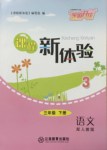题目内容
Those books were _______ adults, so it’s unnecessary for teenagers to digest them carefully.
- A.devoted to
- B.intended for
- C.connected with
- D.introduced to

 芝麻开花课程新体验系列答案
芝麻开花课程新体验系列答案BINGHAM REGIONAL COLLEGE
International Students’ Orientation Programme
What is it?
It is a course which will introduce you to the College and to Bingham. It takes place in the week before term starts, from 24th-28th September, but you should plan to arrive in Bingham on the 22nd or 23rd September.
Why do we think it is important?
We want you to have the best possible start to your studies and you need to find out about all the opportunities that college life offers. It will enable you to get to know the college, its facilities and services. You will also have a chance to meet staff and students.
How much will it cost?
* International students (non-European Union students)
For those students who do not come from European Union (EU) countries, and who are not used to European culture and customs, the progamme is very important and you are strongly advised to attend. Because of this, the cost of the programme, without accommodation, is built into your tuition fees.
* EU students
EU students are welcome to take part in this programme without accommodation for £195.
Accommodation costs (international and EU students)
The cost of accommodation for one week is £165
If you have booked accommodation for the year ahead (41 weeks) through the college, you do not have to pay extra for accommodation. You can ask us to pre-book accommodation for you one week only in a hotel with other International students.
What is included during the programme?
Meals: lunch and an evening meal are provided as part of the programme. Please note that breakfast is not available.
Information: including such topics as accommodation, health, religious matters, study skills, and other necessary information.
Social activities: including a welcome party and a half day trip round Bingham.
1.Who is encouraged to attend the course according to the ad?
|
A.Those who are less prepared for their examination |
|
B.Those who want to improve their social lives |
|
C.Those who are not familiar with their future college. |
|
D.Those who want to make up their missed lessons. |
2.It is better for Non-European Union students to take part in the programme because _______
|
A.they don’t have to pay for the course |
|
B.it offers them opportunities to know more about European culture |
|
C.they can save the cost of accommodation while they are studying |
|
D.it is difficult for them to be accepted by the natives in Binghama |
3.If a student plans to take the course, he has to arrive in Bingham at least ___________ days in advance before term starts.
|
A.2 |
B.4 |
C.5 |
D.6 |
4.Which of the following might NOT be included in the programme?
|
A.Learning how to study in the college |
B.Looking for a part-time job in neighborhood. |
|
C.Understanding some taboos(禁忌)in European society. |
D.Travelling around Bingham. |